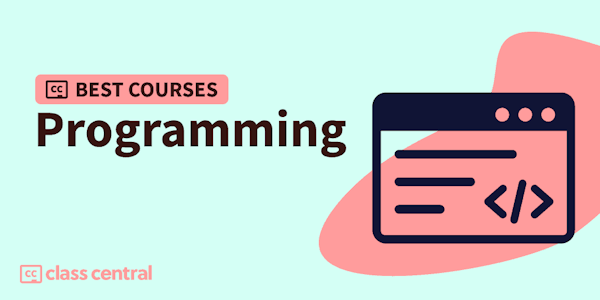Overview
[As described below, this is Part C of a 3-part course. Participants should complete Parts A and B first -- Part C "dives right in" and refers often to material from Part A and Part B.]
This course is an introduction to the basic concepts of programming languages, with a strong emphasis on functional programming. The course uses the languages ML, Racket, and Ruby as vehicles for teaching the concepts, but the real intent is to teach enough about how any language “fits together” to make you more effective programming in any language -- and in learning new ones.
This course is neither particularly theoretical nor just about programming specifics -- it will give you a framework for understanding how to use language constructs effectively and how to design correct and elegant programs. By using different languages, you will learn to think more deeply than in terms of the particular syntax of one language. The emphasis on functional programming is essential for learning how to write robust, reusable, composable, and elegant programs. Indeed, many of the most important ideas in modern languages have their roots in functional programming. Get ready to learn a fresh and beautiful way to look at software and how to have fun building it.
The course assumes some prior experience with programming, as described in more detail in the first module of Part A. Part B assumes successful completion of Part A.
The course is divided into three Coursera courses: Part A, Part B, and Part C. As explained in more detail in the first module of Part A, the overall course is a substantial amount of challenging material, so the three-part format provides two intermediate milestones and opportunities for a pause before continuing. The three parts are designed to be completed in order and set up to motivate you to continue through to the end of Part C.
Week 1 of Part A has a more detailed list of topics for all three parts of the course, but it is expected that most course participants will not (yet!) know what all these topics mean.
Syllabus
- Introduction, Course-Wide Information, and Software Installation (Start Here)
- Welcome! Start here! Learn about this course and how it's organized.
- Section 8 and Homework 6 (First Module with Ruby)
- Let's get started programming with Ruby, including learning about Ruby's variant of (almost) function closures and the "inheritance and overriding" that is the essence of object-oriented programming. The welcome message has a few additional comments about "what makes Ruby different" and how to approach the (rather different) homework assignment, so let's get started...
- Section 8 and Homework 6 (First Module with Ruby): Lesson Choices
- Section 9 and Homework 7 (Second Module With Ruby)
- Welcome to the second week of Part C where we will focus on how functional programming and object-oriented programming encourage such "exactly opposite" decompositions of problems that they are "more alike than you might realize". This is a key opportunity to synthesize much of what we have learned so far. As the welcome message discusses in more detail, we will go a bit beyond this to touch on some related advanced topics and then dive into the last -- and challenging -- programming assignment, which involves porting an interpreter from ML to Ruby.
- Section 9 and Homework 7 (Second Module With Ruby): Lesson Choices
- Section 10, Final Exam, and Course Wrap-Up
- We have reached the last module of Programming Languages! We first study subtyping, how it relates to static types for object-oriented programming, and how it relates to generics. There is no assignment or quiz devoted only to this last "new material", but there is a "final exam" covering Part B and Part C of the course. Enjoy studying for the exam, and don't miss the final "wrap-up" lesson when you're all done!
Taught by
Dan Grossman
Reviews
4.0 rating, based on 2 Class Central reviews
4.9 rating at Coursera based on 458 ratings
Showing Class Central Sort
-
I was very mixed on these 3 courses. Definitely the most difficult courses I've taken for programming. The professor is brilliant but I often found myself lost in the pace and complexity of explaining the most difficult or abstract concepts. I like…
-







